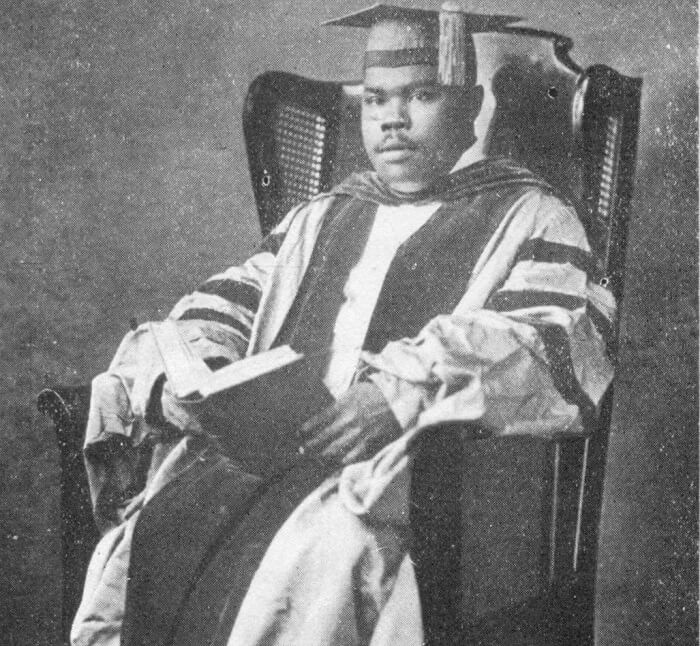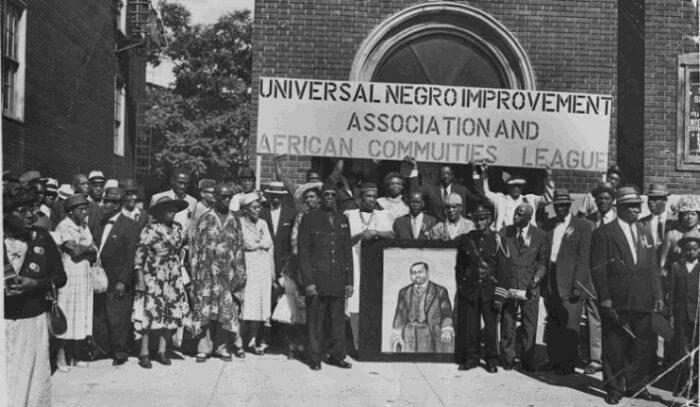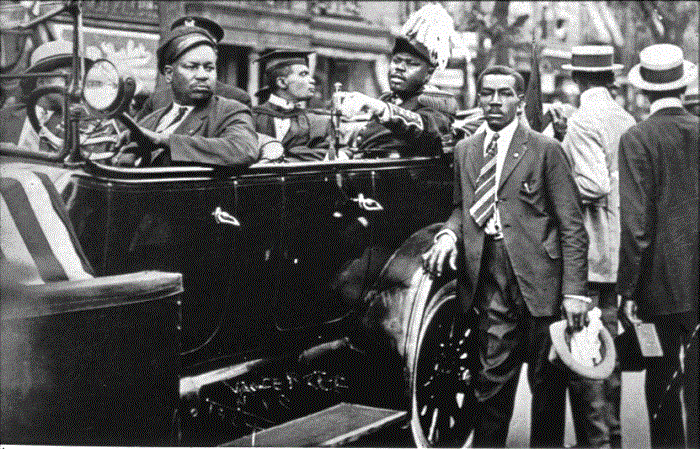8 Facts about Marcus Garvey, the Jamaican National Hero. Although he died in 1940, the civil rights advocate Marcus Garvey exerts a profound influence over the intellectual life of Jamaica and the wider African Diaspora. Garvey’s ideas and organizations attracted millions of supporters in the Caribbean, Latin America, Africa, and the USA in the 1920s.
Although some of his ideas have come under scrutiny nowadays, Garvey was one of the most important voices in the crusade against European colonialism in the 20th century. Below, we’ll go over some of the most important facts about Marcus Garvey everyone should know.
1. Garvey’s Birth And Education

Marcus Garvey was born in 1887 into a fairly well off family in St. Ann’s Bay, Jamaica (close to Ocho Rios). From a very early age Garvey loved to spend hours in his father’s library pouring over books. Although Garvey spent a few years in St. Ann’s Bay’s schools, he was mostly self-taught.
Garvey’s love of reading eventually led him to leave St. Ann’s in search of a better life in Kingston, Jamaica’s capital. Once he arrived in Kingston in his teens, Garvey started working at a printing press.
2. Marcus Garvey’s Early Travels
In 1910, Garvey decided to visit his uncle in Costa Rica. In addition to visiting with family, Garvey had a deep desire to see how people lived in other parts of the world. While in Costa Rica, Garvey was able to find work editing local newspapers. In 1911, Garvey went off to work on a newspaper headquartered in Panama.
Throughout Garvey’s voyages in the Caribbean and Latin America, he saw the horrible conditions of Blacks first-hand. These early trips would influence Garvey’s anti-colonialism and activism later in life. Garvey eventually left Panama to study law in England. After studying for a few years, Garvey returned to Jamaica and then went on to tour the USA.
3. Founding The Universal Negro Improvement Association

Of all the facts about Marcus Garvey on this list, the one he is best remembered for is founding the Universal Negro Improvement Association (UNIA). Garvey was in Ohio when he formally organized the UNIA in 1914. The main goals of this association were to unite people of African descent around the world and to promote Black pride and economic independence in Black communities.
Another one of the UNIA’s main goals was to create a totally Black-governed society in the African continent. At its height in the 1920s, the UNIA had well over one million members and thousands of headquarters around the world.
Most of the UNIA branches were in the USA, but there were also offices in Cuba, Ghana, and Nigeria. The UNIA remains active today and is now headed by President Cleophus Miller, Junior.
4. Black Star Line And Other Businesses
While he was setting up the UNIA in Harlem, Garvey founded the Negro World newspaper to advance his ideas of Pan-Africanism and economic self-reliance in Black communities. In his dozens of articles, Garvey argued that Blacks could only hope to achieve liberation by working to raise their economic standing in cities using the capitalist model.
To help African Americans advance towards prosperity, Garvey created numerous companies in areas like Harlem. A few of these businesses included hotels, laundromats, and restaurants.
He also founded the shipping company Black Star Line in 1919. Black Star Line was designed to increase self-sufficiency and communications within the African Diaspora. Black Star Line encouraged people to buy goods and services from Black-owned businesses primarily in Africa and Latin America.
5. Controversies In Garvey’s Racial Theories
One of the more controversial facts about Marcus Garvey has to do with his views on Black Separatism. Garvey considered himself a Black Nationalist first and foremost. He believed Blacks shouldn’t focus on integrating into White societies, but rather focus on advancing themselves economically and then creating a totally Black-governed Africa.
Basically, Garvey believed in the idea of “Africa for Africans,” just as he believed “Asia for Asians” and “Europe for Europeans.” Interestingly, these ideas even led Garvey to tacitly support the racial separatism of the Ku Klux Klan. Of course, Garvey’s theories led to great conflicts with leading integrationist intellectuals of the time like W.E.B. Du Bois.
While most people nowadays don’t have issues with his critiques of European colonialism, many multiculturalism proponents have problems with Garvey’s racial theories.
6. Imprisonment, Release, And Death In London

At the height of his fame, Marcus Garvey attracted thousands of spectators in a Harlem parade. He was even called the “Black Moses” by supporters. Sadly, that fame was only short lived. Many of Garvey’s business ventures went bust and then in 1922 he was arrested for mail fraud. Garvey was sentenced to five years imprisonment, but President Coolidge pardoned him in 1927.
Garvey was forced to return to Jamaica a broken man. His UNIA never achieved the same amount of prestige after his arrest. Garvey eventually decided to travel back to London where he passed away in 1940. He was initially buried at Kensal Green Cemetery, but his remains were later brought to Kingston, Jamaica.
7. Marcus Garvey Monuments
There are many plaques and monuments dedicated to Garvey’s legacy al over the world. Visitors to the British capital can find one of the iconic blue memorial plaques where Marcus Garvey lived his final years at 53 Talgarth Road, Hammersmith. There’s also a Marcus Garvey Center in Nottingham and a Marcus Garvey Library in north London.
In Jamaica, local authorities have honored Garvey with a place on the $20 coin. There’s also a statue of Garvey in Kingston and a scholarship in his honor. Lastly, even Marcus Garvey didn’t spend any time in Canada, Toronto locals celebrate Marcus Garvey’s birthday on August 17th every year.
8. Garvey Considered A Prophet In Rastafarianism
One of the most interesting facts about Marcus Garvey is that he’s considered a prophet in the Rastafari religion. Rastafaris believe Garvey accurately predicted the rise of Ethiopian Emperor Haile Selassie. For Rastafaris, Haile Selassie I is the Second Coming of Jesus Christ on earth and signals a golden age for Africa in the near future.
The quote Rastafari’s point to in connection with Garvey was in a 1916 interview when Garvey apparently told followers to look out for the coronation of a Black king in Africa.
Many Rastafari’s are influenced by Garvey’s “Back to Africa” ideology and support racial separatism. One of the major holidays on the Rastafari calendar is Marcus Garvey’s birthday. Rastafari’s often meet during this day to discuss Garvey’s philosophy, dance, and indulge in the “holy weed” marijuana.
Final Thoughts
In 1969, the Jamaican government formally recognized Marcus Garvey as its first National Hero. Hopefully this list of facts about Marcus Garvey has given you a greater understanding why so many Jamaicans idolize this man.
To learn even more fascinating facts about Marcus Garvey, consider reading one of the numerous Garvey biographies on the market or some of Garvey’s own texts.
